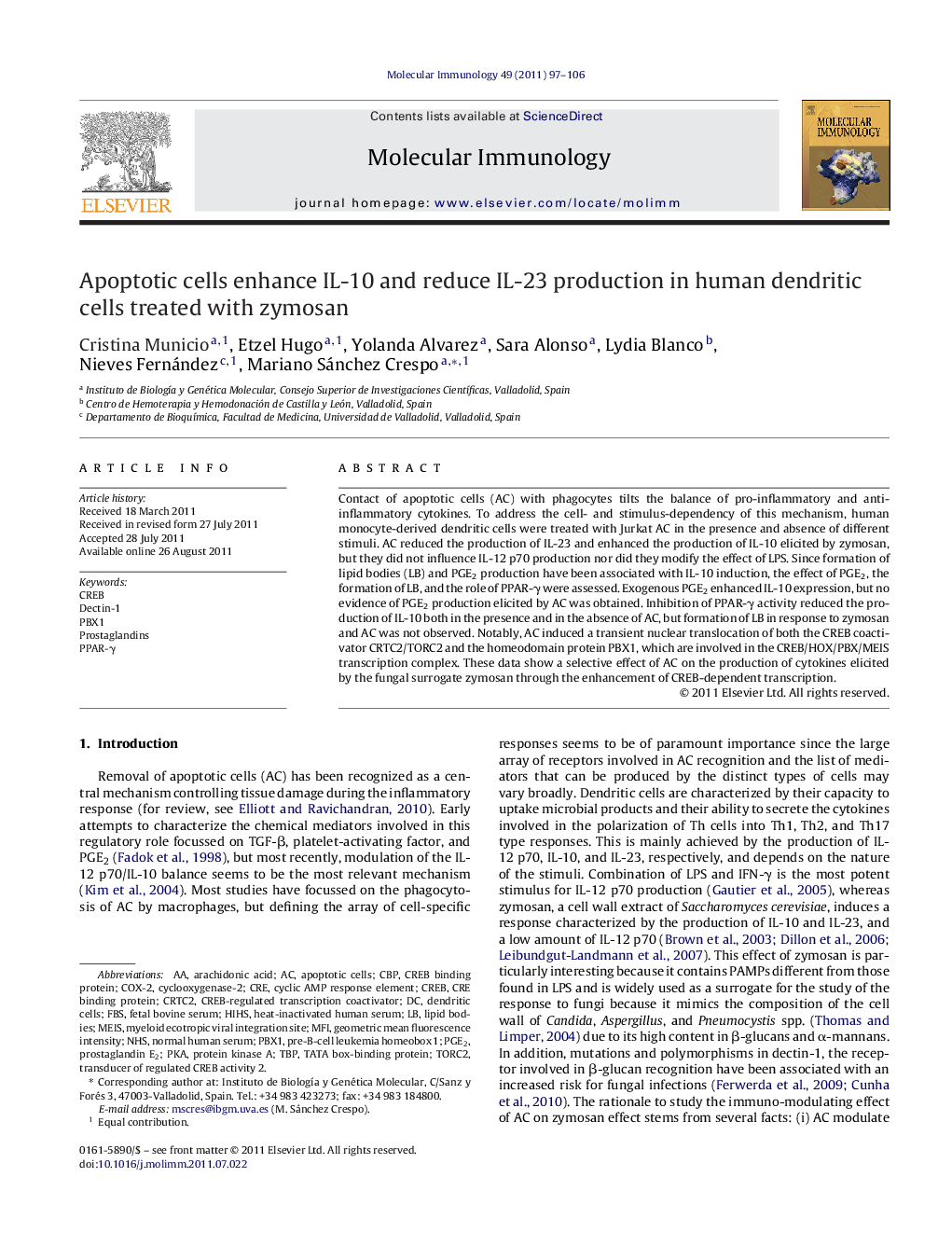| Article ID | Journal | Published Year | Pages | File Type |
|---|---|---|---|---|
| 5917446 | Molecular Immunology | 2011 | 10 Pages |
Contact of apoptotic cells (AC) with phagocytes tilts the balance of pro-inflammatory and anti-inflammatory cytokines. To address the cell- and stimulus-dependency of this mechanism, human monocyte-derived dendritic cells were treated with Jurkat AC in the presence and absence of different stimuli. AC reduced the production of IL-23 and enhanced the production of IL-10 elicited by zymosan, but they did not influence IL-12 p70 production nor did they modify the effect of LPS. Since formation of lipid bodies (LB) and PGE2 production have been associated with IL-10 induction, the effect of PGE2, the formation of LB, and the role of PPAR-γ were assessed. Exogenous PGE2 enhanced IL-10 expression, but no evidence of PGE2 production elicited by AC was obtained. Inhibition of PPAR-γ activity reduced the production of IL-10 both in the presence and in the absence of AC, but formation of LB in response to zymosan and AC was not observed. Notably, AC induced a transient nuclear translocation of both the CREB coactivator CRTC2/TORC2 and the homeodomain protein PBX1, which are involved in the CREB/HOX/PBX/MEIS transcription complex. These data show a selective effect of AC on the production of cytokines elicited by the fungal surrogate zymosan through the enhancement of CREB-dependent transcription.
⺠Apoptotic cells increase IL-10 and reduce IL-23 in response to zymosan in human dendritic cells. ⺠PPAR-γ inhibition modulates IL-10 production. ⺠The effect of AC on IL-10 production is independent from the formation of lipid bodies and prostaglandin E2. ⺠Apoptotic cells induce nuclear translocation of the CREB coactivator TORC2/CRTC2 and pre-B-cell leukemia homeobox 1.
